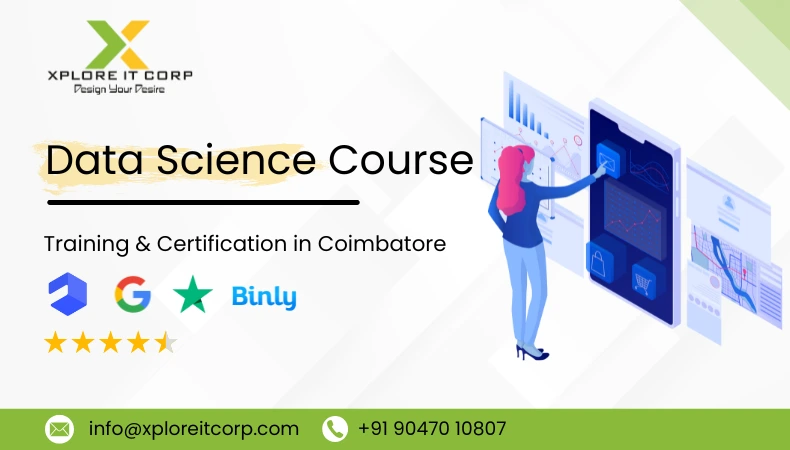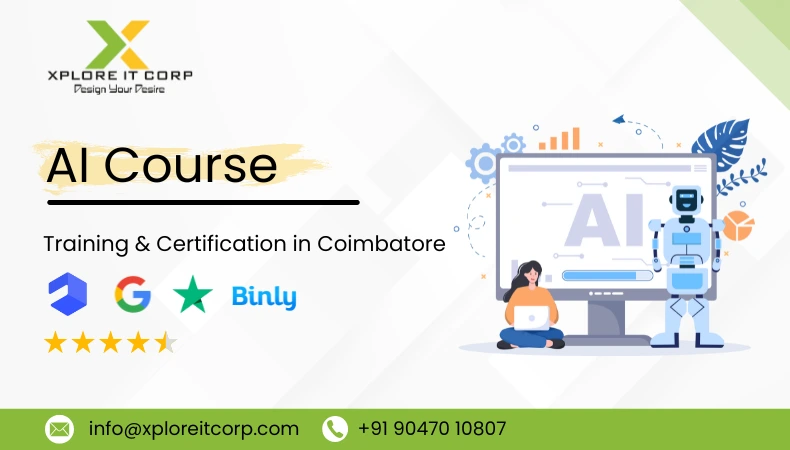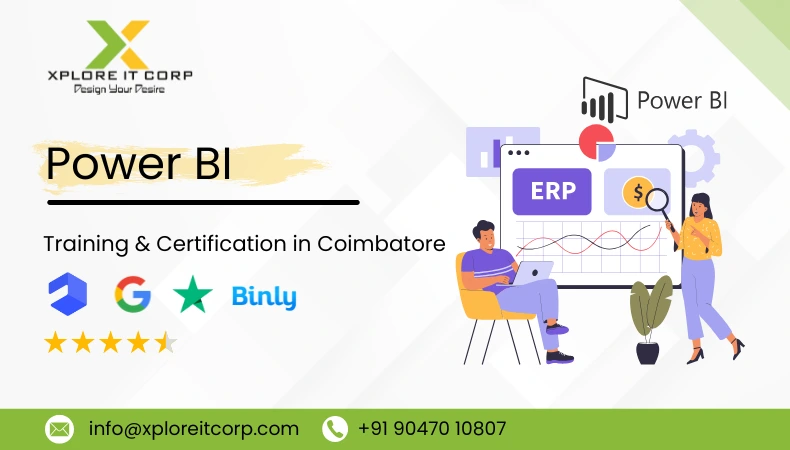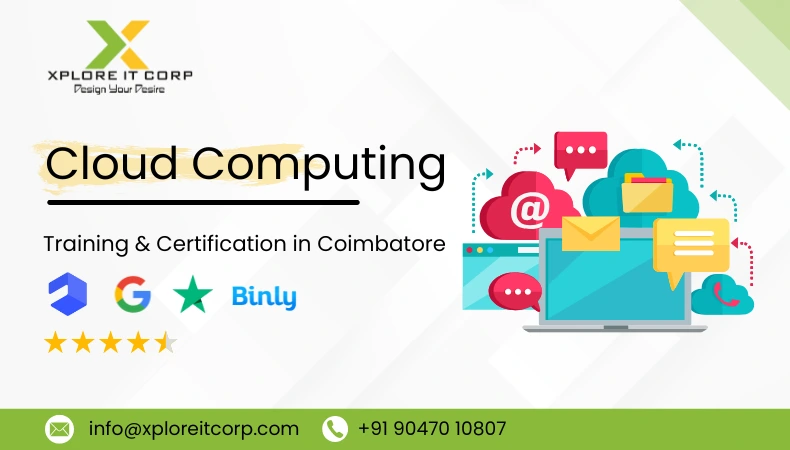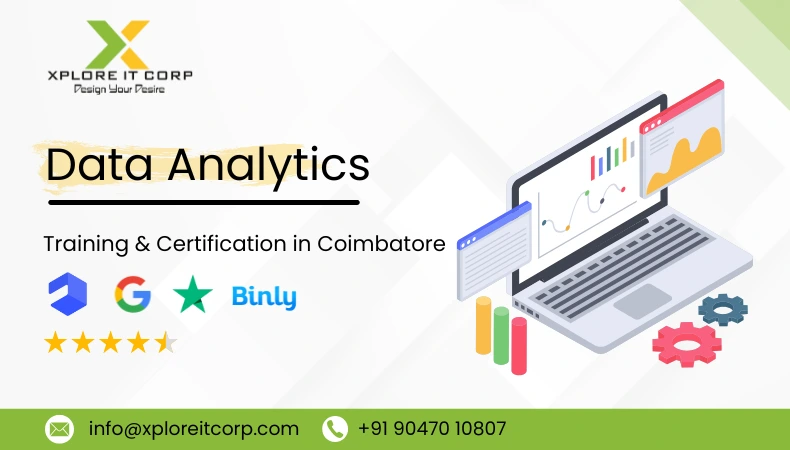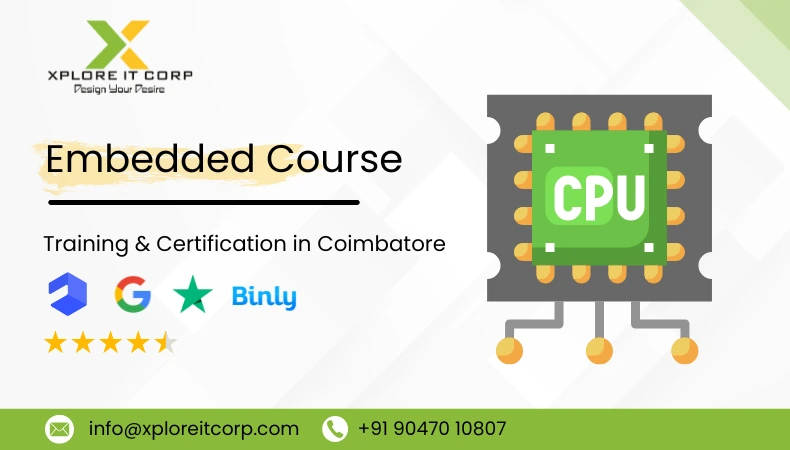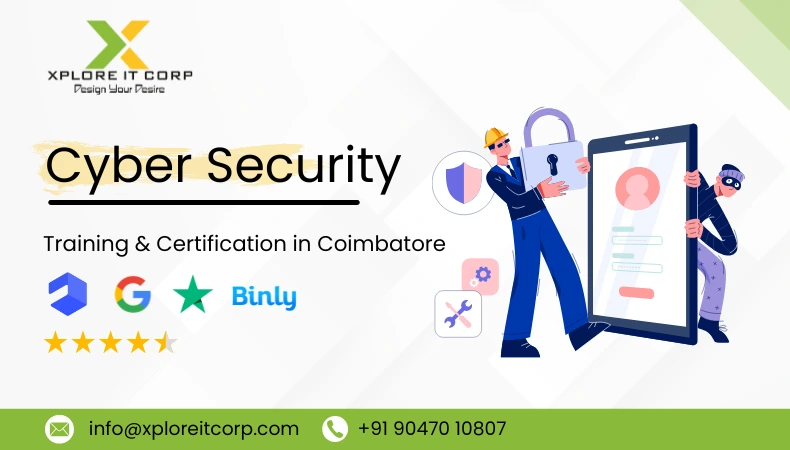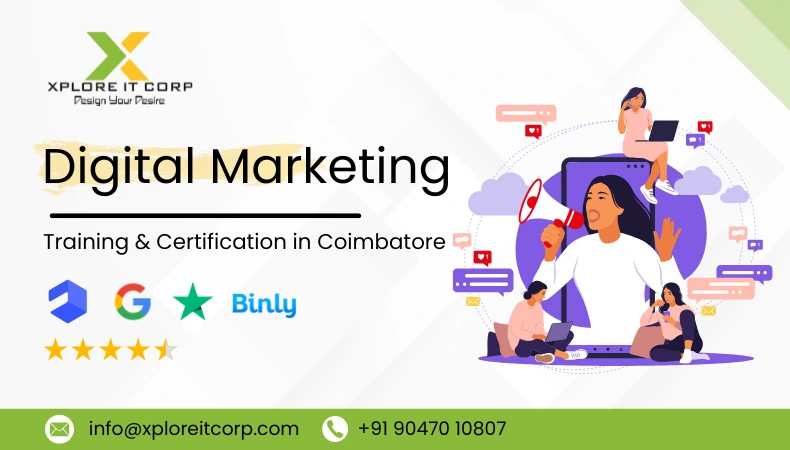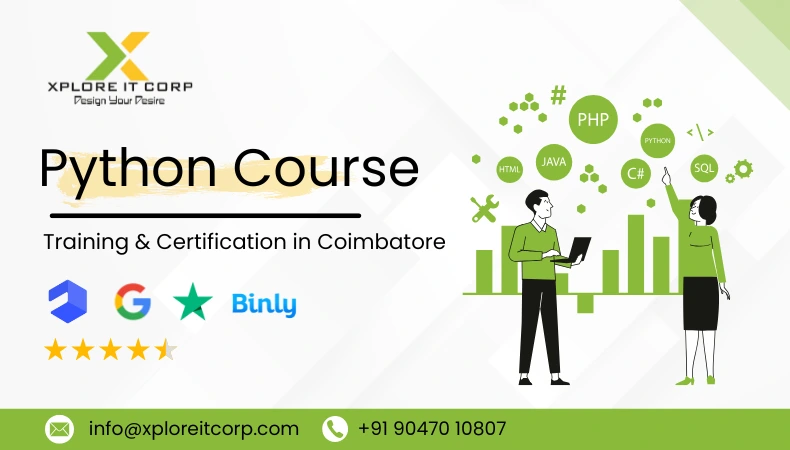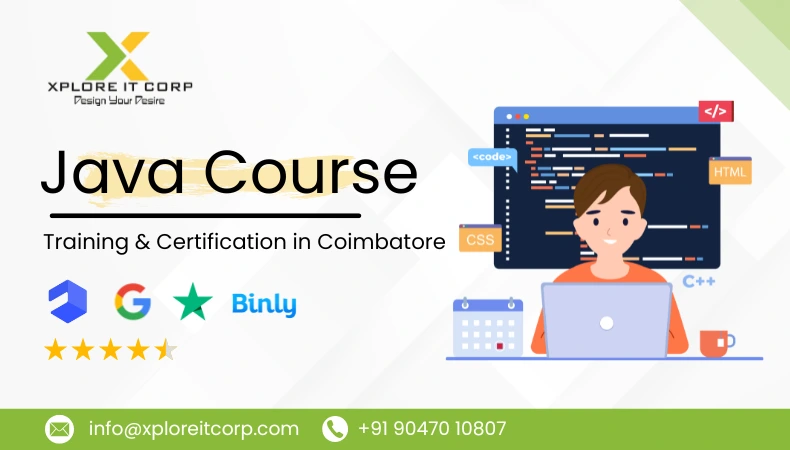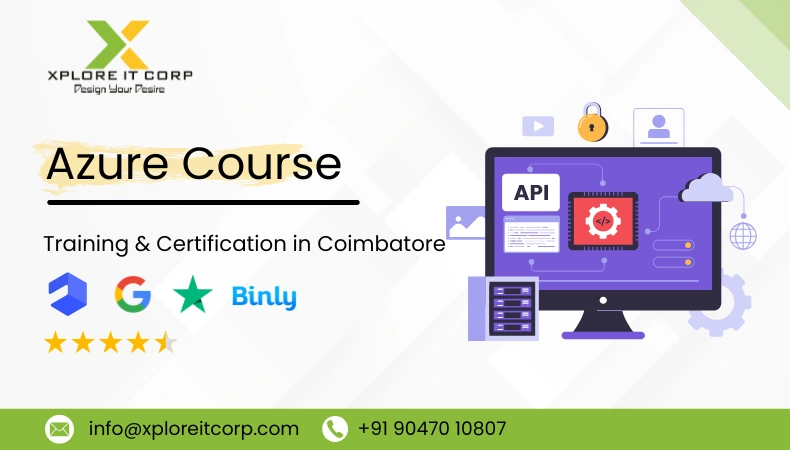
Azure Training in Coimbatore
Master the art of Cloud Computing in the top-notch azure training in Coimbatore and Xplore IT Corp. Here, we provide individuals with a holistic learning experience from the basics to the advanced concepts of the Microsoft Azure. This azure training in Coimbatore is specifically meant for preparing professionals and amateurs with hands-on practicals and real-time projects that help them get a better understanding of Microsoft Azure services and applications. The certified trainers coach throughout the learning process keeping industry standards and preparing for globally recognized certifications. Besides, the azure training and placement program helps students gain not just knowledge but skills to make it into the employer’s shortlist. The program essentially covers all areas that one is learning with regards to azure infrastructure, scalable application development and certifications. We’re here to prepare you for the new cloud computing world with Azure training in Coimbatore. Make your dream career possible through our azure training and placement support-now!
Key Features
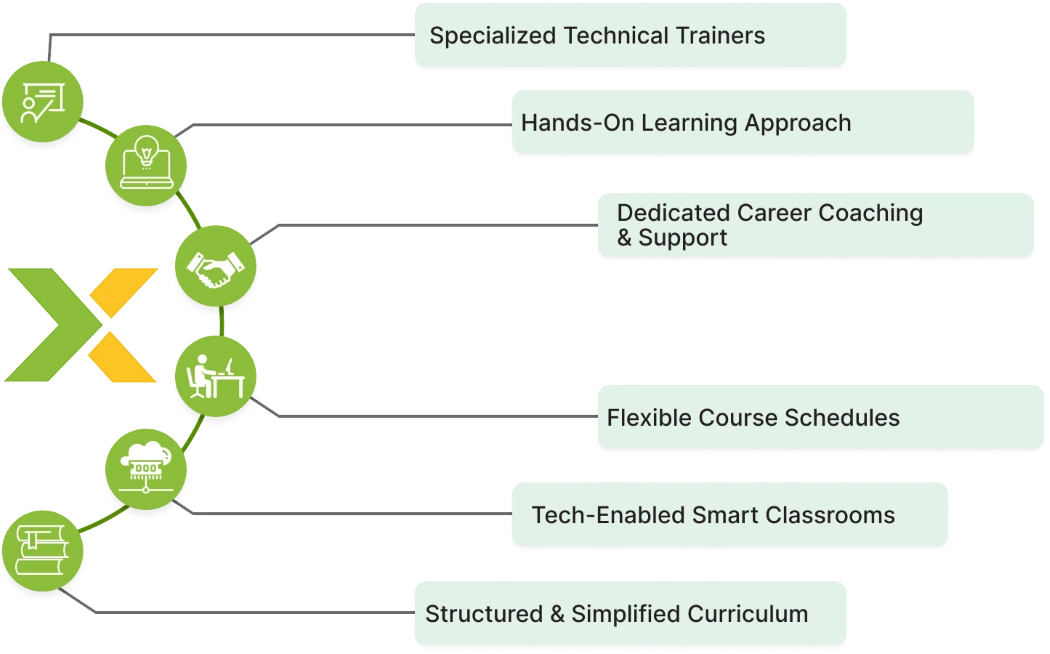
Highlights of Xplore IT Corp Azure Course
All-Encompassing Lessons
Our Azure training comes with a curriculum matching industry standards that includes studies on cloud services putting together virtual systems and the basics of networking.
Pro Instructor
The teaching in our Azure training in Coimbatore are professional geeks with strong experience. They hand out top-notch advice for acing Azure materials.
Case Studies
Working on live-case studies, students learn how Azure plays its part in the tech world. Getting this type of real practice is a big deal for moving up in your career.
Hands-On Learning Time
Our Azure course offers cool sessions where students get to raise their hands, clear up confusion and jump into conversations.
Certification and Assistance for Your Career
Finish our Azure training and placement and you'll get a well-known certificates and tips for chasing the best IT gigs.
Live Practice
We focus on the real deal by making you work on current projects and case scenarios. With Azure training and placement, learners get first-hand know-how on Azure gadgets and assistance.
Objectives of Azure Course
Learn the basics of cloud tech but focus on Microsoft Azure while you’re at it with our Azure training in Coimbatore.
Getting the Basics on Cloud
Get a grip on setting up and running virtual machines with Azure in our Azure training and placement.
Setting up Virtual Machines
Build skills to craft virtual networks, divvy up subnets, and form security groups during our Azure training in Coimbatore.
Putting Azure Networking in Place
Grasp how to manage Azure’s storage options such as Blob Storage, File Storage, and Data Lakes at our Azure training and placement.
Handling Azure Storage
Pick up on the top methods to shield cloud apps and keep data safe at our Azure training in Coimbatore.
Setting Up Azure Security
Tackle actual projects to make you sharp at applying Azure answers in our Azure training and placement scheme.
Real-World Assignments
Benefits of Azure Course Certification
- Getting a certificate from our Azure training in Coimbatore can pump up your odds in the cloud computing employment race.
- Companies are on the lookout for folks with Azure certificates so our Azure training and placement is pretty valuable.
- Learners pick up hands-on skills that get them ready to take on the real world, thanks to our Azure training in Coimbatore.
- If you're Azure-certified, you'll get a paycheck showing that our Azure training and placement is a clever choice for your career path.
- Network with industry pros and create valuable links by finishing our Azure training in Coimbatore.
- Discover the newest Azure instruments and methods with our Azure training and placement.
Benefits of Azure Training in Coimbatore

High Demand for Azure Professionals
Around the world there is high demand after our Azure course where knowing the cloud is super important.

Opening Doors to Move Up
Nail our Azure training and placement and find yourself in the mix for sweet gigs at big IT firms for Azure-certified students.

Practical Learning
Our Azure training in Coimbatore gives you real practice using Azure tools to prepare you for work.

Hands-On Help
Our trainers give one-on-one teaching, so all the Azure stuff gets totally clear to each learner.

Valuable Certificates
Getting certified from our Azure course makes your CV shine and boosts your chances of nabbing a job.

Study Whenever
We're all about Azure training and placement with class times that fit anyone, students and folks with jobs.
Syllabus of Azure Course
- Why Cloud and What is Cloud Computing?
- Identify the features and benefits of cloud computing
- Different types of Cloud Computing deployment model
- Public Cloud, Private Cloud, Hybrid Cloud
- Virtualization – An essential in cloud
- Virtualization in Cloud model
- Different types of virtualization
- Hypervisor – Benefits
- Different types of services and its difference in Cloud computing
- IaaS, PaaS, SaaS
- Importance of scaling in cloud computing
- Different types of scaling and its applications
Issues we overcome using cloud and applications - Cost model that we use in cloud computing
- Microsoft Azure – An High-level overview
- Creation of Azure account
- Overview of the services provided in Azure
- Learn support center help and other controls
- Creating subscription for the account
- Cost center and tagging
- Azure policies
- Managing and analyzing Azure resource
- Diagnostics and baseline environment
- Creating alerts and metrics
- Managing costs
- Log analysis
- Introduction to Virtual machine architecture
- Azure Virtual machine – an overview
- Understanding different families of virtual machines
- Understanding the plans and costs of virtual machines
- Creating a virtual machine
- Connecting the virtual machine remotely
- Understanding VM Availability
- Understanding and setting virtual machine monitoring
- Virtual Machine scale sets (VMSS)
- Creating windows and Linux virtual machines
- Adding additional data disks to Virtual machine
- Adding network interface cards to virtual machines
- Changing different VM size
- Redeploying virtual machines
- Understanding virtual machine backups
- Virtual machine backup jobs and restores
- Hands-on on virtual machine concepts
- Understanding Basic networking
- Understanding CIDR
- Creation of virtual networks
- Public IP addressing concepts
- Learning network routing on azure
- Setup virtual networks peering between different virtual networks
- Vnet to vnet connection
- Setup Load Balancer
- Front End IP Configuration
- An intro to Network security groups
- Implementing Network security group rules
- Azure DNS services introduction
- Assigning custom domains
- Introduction and Creating Azure AD
- Adding our Custom Domains
- Learn about AD Identity Protection
- How to implement Self Service Password Reset
- Conditional Access and Access Reviews
- Azure AD MFA – An introduction
- Azure AD Conditional Access
- Configuring Fraud Alerts
- MFA One Time Bypass
- Understanding Azure Role-based access control (RBAC)
- Creating custom RBAC
- Create Storage Account
- Virtual Networks and Firewalls
- Access Keys and SAS
- Storage Explorer
- Log Analytics
- Redundant Storage
Our trainers at Xplore IT Corp are experienced individuals with years of industry experience working in cloud computing. They ensure that students who attend the class gain practical hands-on knowledge pertaining to the present industry standards while bringing real-world expertise to the classroom. This is achieved while giving personal attention to each student; our trainers explain the intricacies of Azure while helping students learn core concepts as well as advanced techniques. Azure Training and Placement- The designing of the courses is done accordingly to prepare for real-world scenarios. The practical insights of deployment and solutions within the cloud offered by trainers for students ensure a job-ready mindset for every learner, making Xplore IT Corp the first choice for an Azure Training and Placement.

Leading Training Institute
Xplore IT Corp known for top Azure training in Coimbatore with lessons that are all about real work stuff.

Pro Mentors
The trainers in our program bring real-world know-how to the Azure training and placement sessions.

Practical Learning
We push our focus toward interactive, hands-on experience with Azure gadgets to get students ready for actual professional puzzles.

Help with Getting Jobs
Our Azure training and placement service helps with crafting resumes getting ready for interviews and offers a hand with securing a job.

Reasonable Prices
Everyone can afford the Azure training in Coimbatore that we offer due to the decent pricing, without lacking on excellence.

Certificates That Matter
After finishing our Azure training and placement class, learners get a certificate that the industry respects.






Placement After Completing Azure Course

Job-Ready Training
Our Azure training in Coimbatore supplies learners with the expertise for leading IT jobs.

Help Making Resumes
We assist learners in making polished resumes that feature Azure capabilities from our Azure training and placement.

Practice Interviews
Learners take part in practice interviews to get ready for work opportunities following our Azure training in Coimbatore.

Opportunities for Internships
We offer programs for internships to get real work experience with our Azure training and placement.

Job Support
After you finish our Azure training in Coimbatore, our team hooks you up with job referrals and helps you find a place to work.

Advice on Careers
After our Azure training and placement, pros are here to give advice on careers to make sure you hit your job targets.
Job prospects after graduating from the course
Cloud Solution Architect: Create and deploy cloud-based solutions to businesses.
Azure Developer: Develop and manage applications through the use of Azure cloud services.
Azure Administrator:Monitor and manage environments and infrastructure through Azure.
Cloud Engineer: Work on cloud technologies with the design and optimization of infrastructure.
DevOps Engineer:
Implement CI/CD pipelines and automate process implementations using Azure tools.
Security Engineer:
Focuses on securing cloud applications and infrastructure through Azure.
We offer a placement course in Cloud Computing, ensuring you have a clear path to employment and continuous support and guidance from our dedicated placement team.
Our In Demand Courses
Frequently Asked Questions
The pricing of our course is competitively low with flexible payment options. Reach out to know more.
Yes, it covers all necessary topics for a beginner as well as people with experience.
Absolutely! You'll be trained for several Microsoft Azure certifications.
You will learn all of these Azure tools like Azure DevOps, Kubernetes, and Azure Active Directory.
You can register directly through our website or call us for direct assistance.

Reach Us Now!







